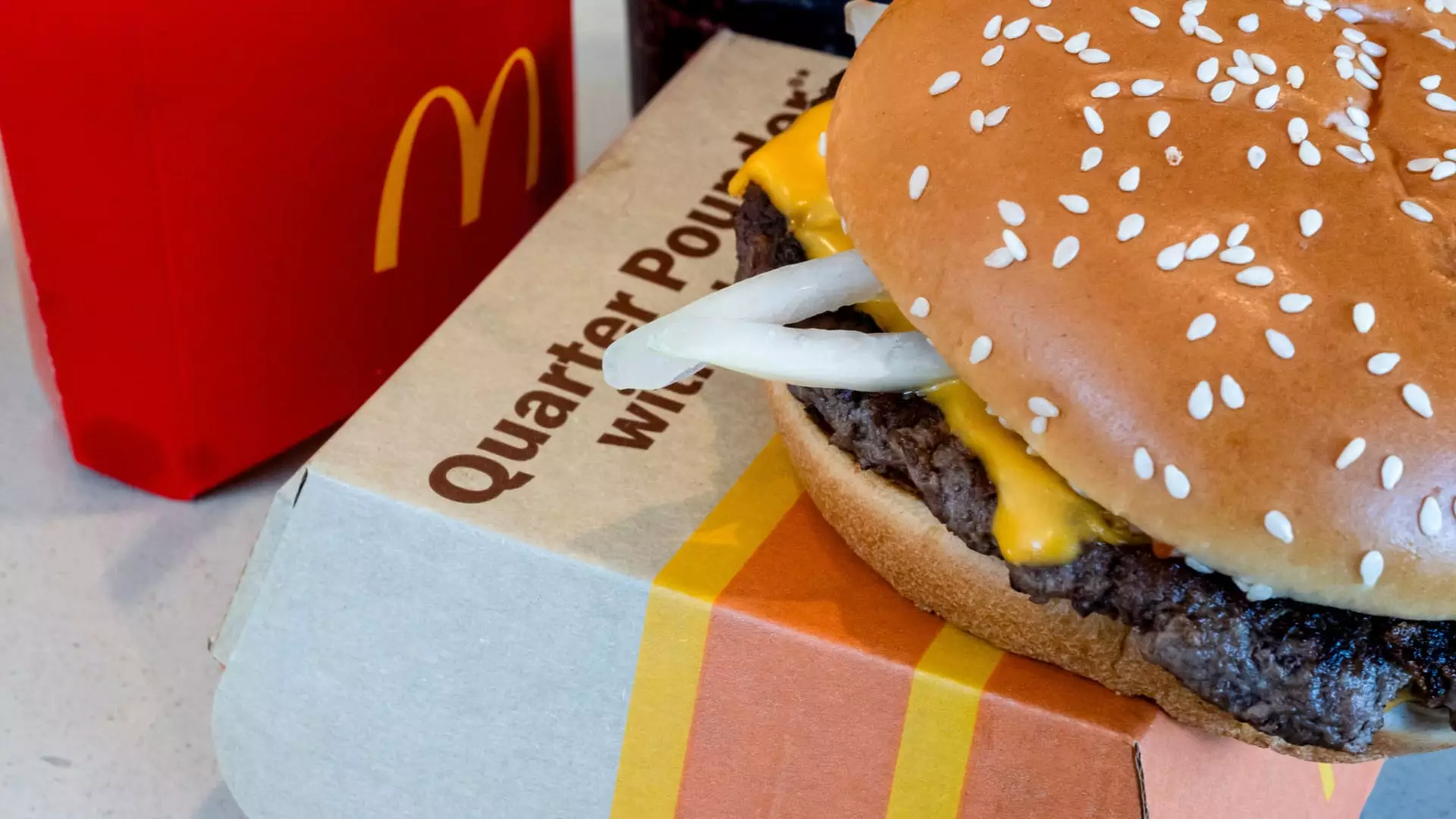The recent E. coli outbreak associated with McDonald’s Quarter Pounders has raised significant alarm across the United States, involving 75 confirmed cases reported in 13 states, as per the Centers for Disease Control and Prevention (CDC). Given the outbreak’s concerning implications for public health and the fast-food giant’s reputation, it is crucial to unpack the details surrounding this event, its causative elements, and its potential repercussions on McDonald’s and the broader fast-food industry.
The Outbreak: Cases and Hospitalizations
The CDC’s investigations revealed that among the 61 patients with available information, nearly 36% required hospitalization due to severe symptoms, including two cases evolving into hemolytic uremic syndrome, which can lead to acute kidney failure. While one death has been confirmed in an older adult in Colorado, health experts emphasize that this figure may only represent a fraction of the cases, as many people might not seek medical attention or have undiagnosed E. coli infections.
This outbreak has not only put hundreds of individuals at risk but has also highlighted a broader public health concern involving food safety protocols within the fast-food sector. The ages of the infected individuals, ranging from 13 to 88 years, underscore that people of all ages are susceptible to foodborne illnesses, necessitating stringent food handling and preparation standards at food establishments.
As the CDC works diligently to pinpoint the source of the E. coli, attention has shifted toward the slivered onions used in the Quarter Pounder, which are believed to be the likely vehicle for the bacteria. According to McDonald’s, slivered onions were traced back to California-based supplier Taylor Farms, who has since issued a recall of four onion products amid concerns of E. coli contamination.
In a cautious response, McDonald’s swiftly acted by removing slivered onions from their supply in the affected states and temporarily halting the distribution of this ingredient. Furthermore, several fast-food chains, including Burger King and KFC, are also withdrawing onions from select locations as a precautionary measure. These actions reflect the food industry’s heightened focus on consumer safety, as even minor contamination incidents can lead to widespread fear and loss of customer trust.
Following the CDC’s announcement, McDonald’s faced immediate repercussions on Wall Street, with its shares dropping by 2%—a decline that exacerbated an already negative trend since the incidence was first reported. Amid a backdrop of sluggish sales, the fast-food giant is grappling with consumer perceptions and the potential fallout from this outbreak.
Currently, around 20% of McDonald’s U.S. restaurants have ceased selling Quarter Pounders to mitigate health risks and quell the growing consumer unease. The company’s management, while refraining from detailed commentary, is likely to be acutely aware of the implications of this outbreak on their upcoming third-quarter earnings report. Analysts are predicting a modest sales increase of 0.5%, which could constrict further depending on customer reactions to this health crisis.
Public Trust and the Future of Fast Food
As McDonald’s strives to reassure its customers of the safety of its menu items, the incident casts a long shadow on consumer trust. Foodborne illness outbreaks, although relatively rare, can have long-lasting effects on brand loyalty and sales, especially in a sector where customers often prioritize convenience and price over health considerations.
Looking ahead, McDonald’s and similar chains may need to ramp up their food safety protocols and introduction of transparent supply chain practices to fortify consumer trust. Experts suggest that unless the outbreak escalates into a more severe crisis, the long-term damage to the McDonald’s brand may be limited. However, the situation remains fluid, with consumers increasingly aware and concerned about the implications of food safety in their dining choices.
While the immediate crisis surrounding the E. coli outbreak is being managed through recalls and heightened health protocols, the implications for McDonald’s and the entire fast-food industry highlight the urgent necessity for robust food safety measures and transparent communication with consumers. The outcome of this situation will not only influence public health responses but will also play a crucial role in shaping the future operational strategies of fast-food restaurants.

Leave a Reply